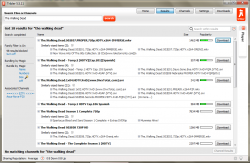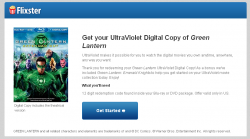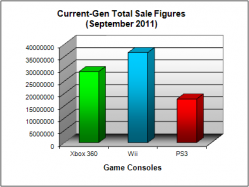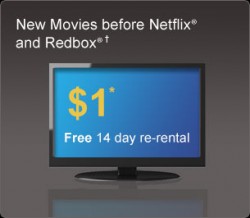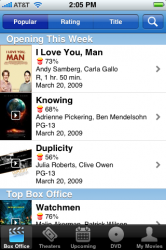Welcome to the latest edition of the WNR. It’s a shame that the leap day doesn’t fall on a Sunday this year, as it would make an awesome collector’s edition of the WNR – as such, it’s on possibly the most boring day of the week: Wednesday.
I know I promised the NPD analysis last week, but it turns out there just wasn’t enough data to compile one, thanks to both Nintendo and Sony keeping mum on hardware figures (no doubt because they have crap numbers). Only Microsoft released figures for its Xbox 360 console (the least worst of the bunch). So it seems January 2012’s NPD analysis will have to be replaced with a much shortened version, which you’ll find in the “Gaming” section below.
In terms of news, there were only a couple of interesting ones, and a few late breaking ones that I will cover briefly in this edition, but in more detail in the next. So don’t be surprised at the brevity of this WNR (and it totally didn’t have anything to do with the fact that I’ve now put in 50+ hours in Skyrim).

The likes of the MPAA and RIAA have compared web piracy to a lot of things, but I’ve always wondered why they haven’t compared it to some kind of infectious disease, as I think The Piracy Pandemic® has a certain ring to it.
It’s a great comparison not just because the content holder set their hyperbole engine into overdrive by comparing web piracy to something deadly and scary, but also on two other major points. One, just like an infectious disease, piracy spreads quickly, and it does so in poorer countries with greater virulence. And also just like viruses, piracy adapts to any measures you employ to try and stop it, whether it’s a technical measure, or a legal one. The more you try to fight it, the more likely it will mutate into something that’s more resistant.
The latter of these two points was demonstrated, twice, this week. Decentralisation has been a continuing trend in piracy (Megaupload and sites of similar ilk are actually quite a throwback to the early days of piracy, where everything was hosted on centralised HTTP websites), but despite decentralisation being the major driving force behind the creation of BitTorrent, two major centralised components still hold it back from truly being decentralised. The inherent weakness in BitTorrent file sharing is the existence, and the necessity, for centralised trackers and a centralised “indexer” website that catalogues the available downloads, like The Pirate Bay. This website would also host .torrent files, and while these files are small by any standard, the sheer number of them ensures that the total size of the website and database can be quite large. Taking down a tracker can cause downloads to cease to work, as peers would not be able to find each other, and taking down websites like The Pirate Bay would mean that you won’t even able able to find the torrents to get you started. These two weaknesses have often been exploited by content holders, with past lawsuits able to bring down popular trackers, and BitTorrent indexers such as Mininova.
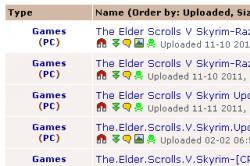
The Pirate Bay will remove .torrent files by the end of this month, encouraging users to use Magnet Links (show above with the little magnet icon) instead
This week, The Pirate Bay announced steps which will mitigate these two risks, although the actual technical measures used to solve these two problems have existed for some time already. The Pirate Bay, at the end of this month, will remove .torrent files for any torrents that has over 10 peers and will use Magnet Links instead. A Magnet Link is simply a web URL, a string of text that once loaded into your BitTorrent Client of choice, will give the client just enough information to be able to download the actual .torrent file from users that are already sharing the torrent. And using the DHT (Distributed Hash Table) technique, Magnet Links don’t need trackers in order to download the .torrent files (and the actual download most likely won’t need trackers as well, thanks also to DHT). But for The Pirate Bay, the best thing about switching to a Magnet Link based website is the fact that they no longer need to host .torrent files (well, not as many as before, anyway), and this allows the hosting, and bandwidth, requirements of The Pirate Bay to be reduced to the point where the entire website can probably fit onto a small USB thumb drive (removing all .torrent files, a user has already demonstrated the ability to reduce The Pirate Bay’s Magnet Link database to only 90MB). This will help more TPB mirrors to be set up, and to allow the website to be moved from host to host more easily, thus making the website more resilient to take-downs. There’s also something quite perverse about being able to “download” the entire Pirate Bay to your hard-drive.
And even in the event of The Pirate Bay finally being taken down, there’s now a plan B. A new BitTorrent client, Tribler, aims to remove the any need for websites like The Pirate Bay, and remove the one last centralised component of the largely decentralised BitTorrent download process. Tribler does this by moving the torrent indexing component into the BitTorrent swarm itself, and allow you can search for torrents right within the client. Even things like reviews, comments, and the obligatory removal of fake torrents, can all be done within the client. Tribler, developed by researchers at Delft University, is also open source, and that makes it more resilient, as if one variant of the client is taken down by authorities, others will pop up almost instantly (and probably with more features). What this essentially means is that BitTorrent, via Tribler, is now unstoppable. Or to put it even more succinctly, and to quote the head of the Tribler project, “The only way to take it down is to take The Internet down.”
Now, just because BitTorrent downloads cannot be stopped, it does not mean that you can’t be forced to stop using BitTorrent, as the major flaw in Tribler is that it still allows authorities, and those seeking to profit from (anti) piracy, to track your IP address. So the next evolution of BitTorrent, in my mind, will be one that allows peers to communicate anonymously – that is, to allow sharing without making the IP addresses public at any point in the process. The external pressure heaped towards downloaders, from law firms such as US Copyright Group, and also the rights holder’s push for graduated response, will no doubt have already pushed clever developers into tackling this very problem, and I don’t expect we’ll have to wait too long for this next evolution. And once it arrives, BitTorrent will be anonymous, unstoppable, and it will spell “game over” for both technical and legal methods to stop the downloading.
This scenario both scares me, and excites me. It scares me because, with no way to stop downloaders, things could get out of hand very quickly. But it also excites me because, without any technical or legal recourse, content holders might finally have admit to the need to compete with piracy, and we may finally see the entire industry put everything behind innovating their way out of the problem. Consumers will be the main beneficiary, and I look forward to new and brilliant ways to consume content, legally. Of course, this should have been the way forward since the first torrent was uploaded, and it would have been easier to compete back then, compared to a time when BitTorrent may have become truly unstoppable.
Going back to the point I made earlier about Megaupload being an outdated way of hosting pirated downloads, the closure of R&B/hip hop blog RnBXclusive this week shows why centralisation is dangerous. But what’s more dangerous is the pattern that’s emerging with law enforcement actions against websites suspected of copyright infringement – the fact that law enforcement agencies appear to be acting as the private police force for the entertainment industry without questioning the one-sided evidence presented to them – evidence that has often not stacked up in court. Time and time again, websites were taken down with the full force of the law, but still managed to be difficult to prosecute, or in the case of the similarly themed DaJaz1 (taken down by US Homeland Security as part of Operation In Our Sites), the case might not even end up in court. This is why due process exists and why it’s needed, for the evidence to be tested in a court of law before guilt is determined, and action is taken.
And to add insult to injury, visitors to rnbxclusive.com were initially threatened with messages that mentioned “an unlimited fine” and “a maximum penalty of up to 10 years” in prison for anyone who simply downloaded some songs from the website. A Big Brother style warning of the “capability to monitor and investigate you” was given an extra dimension of fear, by displaying the visitor’s IP address on the home page (a simple enough thing to do in php, but still scary enough for the less technical minded). These threats have since been removed from the website, no doubt due to complaints about the potentially misleading statements which could get SOCA (UK’s Serious Organised Crime Agency), the organisation that took charge of seizing the website, into trouble. But it’s the kind of hyperbole we’re used to seeing from the entertainment industry, the most likely ghost writers behind the now removed messages.
One of the entertainment industry’s tactic is to portray everyone who does something against their interest as criminals, even if it’s something as simple as ripping your own legally purchased DVD. I reported a couple of months ago on the efforts by public interest group Public Knowledge to make DVD ripping legal. They argued that due to the increasing number of devices that don’t play DVDs, such as tablets and smartphones, consumers need to be given the right to rip their own legally purchased movie discs. The fact that everyone who wants to do it is already doing it, means that making DVD ripping illegal under the DMCA is pointless at best, and at worse, criminalizes an activity that falls under fair use. With PK having made their submission to the US Copyright Office, which reviews submissions for exemptions to existing copyright laws every three years, the MPAA has just responded with quite an absurd argument *for* keeping DVD ripping illegal: it gives consumer more choice!
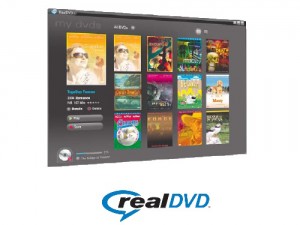
If Public Knowledge manages to get a DVD ripping exemption from the US Copyright Office, then it's still too late to save innovative software like RealDVD, which was sued into oblivion by the MPAA
What the MPAA is saying is that since consumers don’t have the legal option to rip their own DVDs, then the legal option to get the movie you already paid for, on other devices, is to simply re-purchase the movie again. And again and again. Consumers can “choose” to pay for the same movie on their iPhone, “choose” to pay for the same movie again on Android, and then “choose” to pay for the same movie once more on their PS3, for example.
Far from being a convincing argument, this is precisely PK’s argument for making DVD ripping legal, that consumers shouldn’t be made to fork out money for the same content over and over again, due to a legal measure designed to do something else. This is a perfect example of piracy laws being misused by content holders, for their own financial benefit, to take away a consumer’s rights. The fact that many movies are not even available on legal platforms further destroys the MPAA’s false arguments about “choice”.
I sincerely hope the US Copyright Office does the right thing and extends the exemption for CD ripping to cover DVDs and Blu-rays too. The reason that The US Copyright Office even asks for submission of exemptions is to prevent exactly this sort of thing – short sighted copyright laws that harm fair use and innovation.
The Megaupload case has also had some new developments in the last few days, although nothing that bodes well for Mr DotCom. More charges have been laid, and $50 million in Mega assets have been seized so far. Without insider knowledge, it’s hard to tell if this is an attempt to shore up the fed’s case before going to court, or if it’s some kind of tactic designed to force a favourable settlement. Copyright cases are not always easy to prove, see Viacom vs YouTube, and given the theatrics that has transpired so far, losing the case is not an option for federal prosecutors.
Meanwhile, the Pirate Bay and RIAA have been engaged in verbal warfare, with The Pirate Bay responding to an article by the RIAA that called it “one of the worst of the worst”. More on both of these late breaking stories next week.
![]()
As mentioned earlier, due to Sony and Nintendo withholding hardware figures for the PS3 and Wii, I don’t have enough data to write up a full NPD analysis, so you’ll have to put up with a simplified version here.
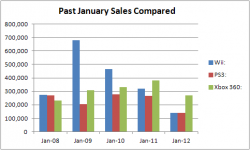
NPD January 2008 to 2012 Compared - things are bad across the board, it seems (January 2012 figures for PS3/Wii estimate only)
Microsoft was the only one brave enough to release data, with the Xbox 360 selling 270,000 units, down 29% from a year ago. Microsoft also mentioned that it held 49% of the current-gen console market. A little maths then tells us that the PS3 and Wii sold a *combined* 281,000 units. With the PS3 and Wii selling in similar numbers usually, that’s around 140,000 units for each, which is way down compared to the previous January’s 319,000 (Wii) and 267,000 (PS3).
These companies can only hope that January was a fluke, and that sales will pick up again.
Game sales were just as bad, with the number one selling title, Modern Warfare 3, only shipping 386,000 units – at the same stage of sales, Black Ops managed 750,000 (although MW3 sold more copies in the preceding months, it’s now flat in terms of sales to Black Ops), and Modern Warfare 2 managed 658,000 during its January period. And considering MW3 was the top seller, it means the other titles in the top 10 were much worse.
Overall, it’s the worst January since 2004.
The results are so bad that analysts are still debating the whys of it, with Wedbush Securities analyst Michael Pachter even questioning the validity of the data.
Maybe people are playing too much Skyrim to have time to buy any new games, just a thought!
And on that sour note, we come to the end of another WNR. Hope you enjoyed it, and see you next week.

